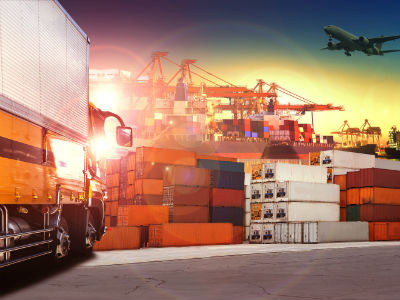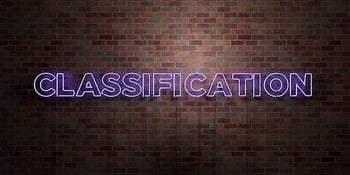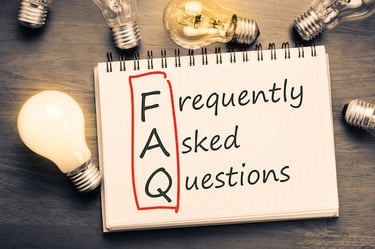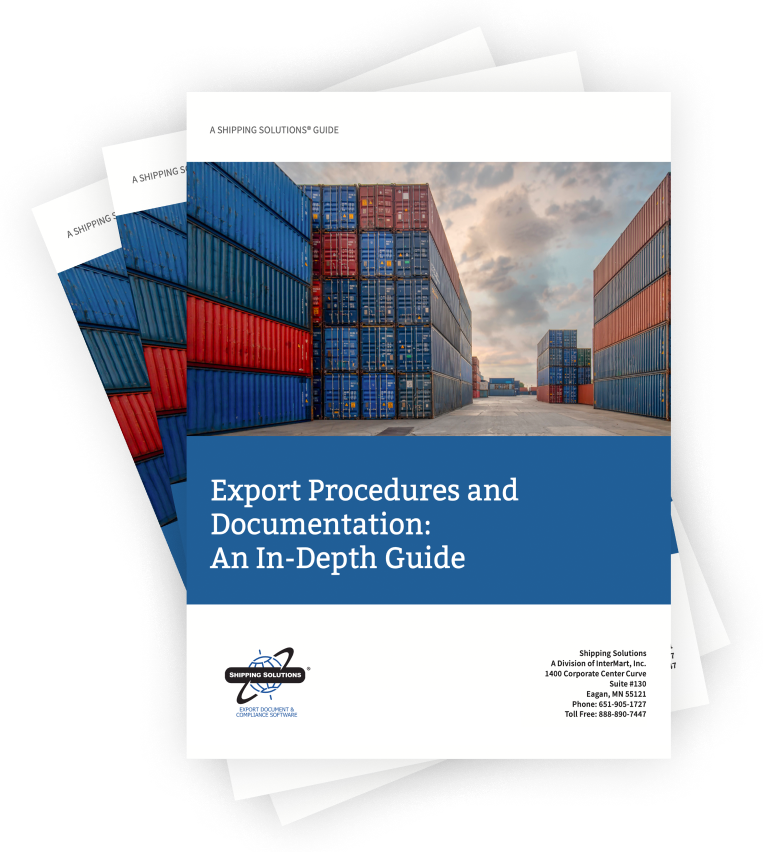The International Trade Blog Export Compliance
No, You Probably Don't Need an Export License, But...
On: April 17, 2023 | By:  David Noah |
10 min. read
David Noah |
10 min. read
 I talk to a lot of people who ask me, “How do I get a license to become an exporter?” That makes me nervous for them, because it shows a general lack of knowledge about what’s involved with exporting.
I talk to a lot of people who ask me, “How do I get a license to become an exporter?” That makes me nervous for them, because it shows a general lack of knowledge about what’s involved with exporting.
Obviously, not everyone who exports needs an export license. But some exports do, and knowing the difference is an important part of export compliance.
Before you can decide if your product requires an export license, you need to understand what constitutes an export. According to U.S. export regulations, an export is any item sent from the United States to a foreign destination, organization or individual.
Here are some examples of when an item is being exported:
- It is sent to a foreign embassy in the U.S.
- It is leaving the U.S. temporarily.
- It is leaving the United State but is not for sale.
- It is going to a wholly-owned U.S. subsidiary in a foreign country.
- It is a foreign origin item exported from the U.S., which is transmitted or transshipped through the U.S.
- It is being returned from the U.S. to its foreign country of origin.
- Release of technology or source code subject to the EAR to a foreign national in the U.S. is "deemed" to be an export to the home country of the foreign national under the EAR. (For more information about deemed exports, see Surprise! You May Be an Exporter without Even Knowing It.)
It doesn’t matter how the items are being sent. These are all exports:
- A package sent through the regular mail.
- An item is hand carried on an airplane.
- A set of schematics are faxed to a foreign destination.
- Software is downloaded from an Internet site.
- Technology is transmitted via e-mail or during a telephone conversation.
Most goods exported from the United States don’t require an export license; they’re permitted to be exported under the designation NLR—no license required. However, there are some select classes of merchandise that do require an export license.
Export License Determination
Never assume your product doesn’t need an export license. An export license requirement isn’t just about the product’s technical characteristics; it’s also about the destination, end use, and end user.
Export Jurisdiction
The first step is always determining what U.S. agency has jurisdiction over your products. While most items that are exported are controlled by the U.S. Department of Commerce's Bureau of Industry and Security (BIS) under the Export Administration Regulations (EAR), they are not the only one. If your item has a military application, it may fall under the jurisdiction of the State Department's Directorate of Defense Trade Controls (DDTC), which manages the International Traffic in Arms Regulations (ITAR).
See A Summary of Government Agencies That Regulate U.S. Exports for a more complete list. And learn more about this process in our chapter five of our free resource, Export Procedures and Documentation: An In-Depth Guide. (If you have trouble with determining jurisdiction, you can ask for a ruling from the Commerce Department.)
 Export Control Classification Number
Export Control Classification Number
Once you know the jurisdiction, you need to review your item to determine if there are any technical characteristics that would require your goods to have a license. For products controlled by BIS, you need to review the Commerce Control List (CCL) to see if your item has an Export Control Classification Number (ECCN). If it does, compare that number to the Commerce Country Chart (Supplement No. 1 to Part 738) to see if a license is required.
You can do this classification yourself, rely on the product vendor to give you this information, or submit a SNAP-R request to BIS for a ruling. You can learn more about these options in our article, Export Codes: ECCN vs. HS, HTS and Schedule B.
We can also help you determine if a license is required for your items. Check out our Export Controls Wizard to try it out for free.
Other Considerations
Even if your good doesn't have an ECCN classification or the Commerce Country Chart indicates you don't need a license for your product based on where you are exporting it, there are additional factors that may determine whether you need to apply for a license before you can export.
1. End Use
Find out how customers are going to use the product.
Your goal in understanding end use is to make sure the customer won’t use your good for purposes deemed illegal. An example of a prohibited end use would be if the items that were shipped were ultimately used to further the proliferation of chemical, biological or nuclear weapons.
2. End User
Several U.S. departments and other government agencies publish restricted party lists (also known as denied parties) with whom you shouldn't do business. Restricted parties are individuals, businesses and other organizations that have been identified as engaging in activities related to the proliferation of weapons of mass destruction, known to be involved in terrorism or drug trafficking, or having had their export privileges suspended.
There are also certain countries you can’t export to except under very specific circumstances. These countries include Cuba, Iran, North Korea, Sudan and Syria. Part 746 of the Export Administration Regulations (EAR) describes embargoed destinations and refers to certain additional controls imposed by the Office of Foreign Assets Control (OFAC) of the Treasury Department.
You can find out more about embargoed countries and export regulations in our article, The Three R’s of Export Compliance: FTR, EAR and ITAR.
The Importance of Restricted Party Screening
Exporters should check all the parties in every export transaction against the various restricted party lists to prevent penalties. The restricted parties lists are all updated at random times on their individual websites, and the only place to guarantee you’re identifying every restricted party on the more than 140 lists is on the Federal Register. You—or your export compliance software provider—should check the Federal Register every single day.
Want to make it easier?
Shipping Solutions Professional export documentation and compliance software includes an Export Compliance Module that makes running restricted party screening checks as easy as clicking a button. With Shipping Solutions:
- You can quickly check multiple lists at once.
- You can make sure your screening against the very latest list of names and addresses. Shipping Solutions continuously monitors the Federal Register and updates the lists every day as necessary. And Shipping Solutions has foreign country staff monitor and update foreign country and international organization lists as well.
- You can check all the required government lists with the click of a button, so you have (at least!) 140 fewer things to worry about.
- You get a more comprehensive review of each list and an indication of the likelihood of a potential match. The Export Compliance Module relies on sophisticated algorithms that identify the close matches in your screening process, including misspellings, alternate spellings, and different formats for addresses and company names.
- You know if there’s a 100% match on a name or address. More importantly, it tells you if a contact is a 95% match, a 72% match, or some other potential match. With that information, you can make more informed decisions about your potential international business partners.
In addition, the Export Compliance Module makes checking the Commerce Country Chart easier. The click of a button in Shipping Solutions compares the ECCN or U.S. Munitions List classification for your goods in a specific shipment and the destination country against the appropriate country charts and tells you if an export license is required.
Schedule a free, private online demo of the Shipping Solutions Professional software to see how easy export compliance can be.
Export License Frequently Asked Questions (FAQ)
 Now that you have a basic understanding about how to determine if you need an export license, check the following frequently asked questions, answered by the Bureau of Industry and Security (BIS), to learn more.
Now that you have a basic understanding about how to determine if you need an export license, check the following frequently asked questions, answered by the Bureau of Industry and Security (BIS), to learn more.
Do the licensing requirements change depending on how I’m sending the item?
Generally, no (see Part 734 of the EAR for limited exceptions). Export license requirements usually stay the same regardless of the method of shipment or transmission. This includes technology shipments via the internet or items hand-carried in a briefcase.
I’m not a company. I’m sending something overseas to a friend. Do I still need to determine if my item needs a license?
Whether or not something is being given away or sold does not affect the license requirements of your shipment. You still need to determine whether or not an export license is required.
What if I’m sending something under $2,500?
The value of the shipment does not affect the export license requirements. However, the value of the shipment may affect the availability of a license exception (LVS or GFT), and the requirements for filing an AES record. If an export license is required, AES filing is also required.
Is a shipment to an Army Post Office (APO) or Fleet Post Office (FPO) considered an export?
Yes. These shipments are exports because they are being shipped to destinations outside the United States. You will need to determine if a license is required. Certain license exceptions, such as license exception GOV, may also be available.
I own a small business and only export one or two times a year. Do I need to follow these regulations?
Yes. Keep in mind that most consumer goods and low-level technology are designated EAR99 and are generally eligible for shipment under the NLR designation. Products with this designation will only require a license to certain prohibited destinations, end users, or end uses.
What is a license exception?
A license exception is an authorization that allows you to export, reexport or transfer (in-country) under stated conditions, items subject to the EAR that would otherwise require a license based on the ECCN and destination. License exceptions are found in Part 740 of the EAR.
Do all items have an ECCN?
Many commercial goods are not on the CCL and do not have an ECCN. These goods are designated as EAR99. EAR99 items generally consist of low-level technology, consumer goods, etc. and do not require a license in most situations. However, if your proposed export of an EAR99 item is to an embargoed country, to an end user of concern, or in support of a prohibited end use, you may be required to obtain an export license.
If my item is EAR99, does that mean I don’t need a license?
EAR99 items will generally ship under the export designation “NLR” which stands for “No License Required.” However, if your proposed export of an EAR99 item is to an embargoed country, to an end user of concern or in support of a prohibited end use, you may be required to obtain an export license.
What if my customer asks me to send the item to their freight forwarder here in the United States? Do I still have obligations?
Yes. Even though your customer is directing the U.S. forwarder to ship the items, you are not relieved of your obligations. The responsibility for determining the proper export authorization and obtaining an export license, if necessary, is your obligation unless your customer provides you something in writing indicating that they are assigning the licensing responsibility to another party in the United States, such as the forwarder. However, even when this occurs, you will still be listed as the “Exporter” on the AES record and on the export declaration as the U.S. Principal Party in Interest (USPPI). If your customer provides you with a written document verifying that they are assigning licensing responsibility to another U.S. person, you will need to provide specific information to the U.S. person in order for them to take the necessary steps to ensure compliance.
The Consequences of Failure
If you or your company fails to obtain a required export license, you put yourself at risk for significant fines, restrictions on future exports, and—in the most egregious cases—jail time. You can read about real-life investigations and consequences in the BIS publication, Don’t Let This Happen to You.
Need Help?
If you still have questions, the BIS website is a great place to start. In addition to articles, you can access webinars and register for seminars in your area.
The International Trade Blog has an archive of more than 600 articles related to international trade. More than 100 of these articles talk specifically about export compliance and regulations.
Like what you read? Subscribe today to the International Trade Blog to get the latest news and tips for exporters and importers delivered to your inbox.
This article was first published in October 2016 and has been updated to include current information, links and formatting, along with information from a previous article by Catherine J. Petersen.

About the Author: David Noah
David Noah is the founder and president of Shipping Solutions, a software company that develops and sells export documentation and compliance software targeted at U.S. companies that export. David is a frequent speaker on export documentation and compliance issues and has published several articles on the topic.



